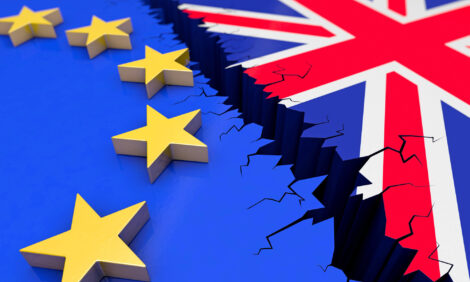



SA Poultry Firms Braced for EU Tariffs Battle
SOUTH AFRICA - Local poultry producers won a battle against cheap imports on Monday (30 September) when Trade and Industry Minister Rob Davies announced tariff increases on five categories of imported chicken products — but the war against the main "culprit", Europe, is continuing.According to BusinessDay, the tariff increases announced by the minister — which involve an overall average percentage point rise of 8.75, excluding whole chickens — relate only to non-European chicken imports.
European chicken enters South Africa duty-free under the bilateral trade, development and co-operation agreement between the European Union (EU) and South Africa.
While not hitting the main target, the tariff revision is also likely to alienate South Africa’s South American trading partners, particularly Brazil and Argentina, which have already complained bitterly about expected hikes.
The South African Poultry Association has European chicken imports in its sights and has applied to the International Trade Administration Commission (Itac) for the use of the safeguard measures provided for in the EU-SA agreement to deal with what the association claims is dumping.
Association CEO Kevin Lovell expected Itac to finalise the association’s application early next year. He estimates about 80 per cent of all chicken imports are from Europe and the increases would apply to less than 6 per cent of local consumption. The increases were "insufficient to stem the massive amount of imports reaching our shores that amounted to more than 175-million chickens last year alone, and when mechanically deboned meat is included, equates to more than 260-million chickens".
The Association of Meat Importers and Exporters of South Africa estimates the market for chicken imports is about 10 per cent or 12 per cent of local production, but the poultry association’s estimate is higher.
The tariff rises came into effect on Monday. The tariff on whole birds rose from the previous 27 per cent to 82 per cent; carcasses from 27 per cent to 31 per cent; boneless cuts from 5 per cent to 12 per cent; offal from 27 per cent to 30 per cent; and bone-in portions from a specific duty of 220c per kilogram (roughly 17 per cent) to an ad valorem duty of 37 per cent.
Mr Davies told the media the agriculture authorities would review the practice of brining — adding salt water to chicken — and would issue new regulations to ensure consumers received fair value for their money.
He explained the differentiation in tariff increases for the different categories of chicken in terms of the level of consumer demand; the effect of the hikes on the poor; and the extent of the unfair competition from which local poultry producers suffer.
The tariff treatment of "bone-in" chicken portions (from a specific to an ad valorem duty) was motivated, Mr Davies said, by it constituting about 70 per cent of local production and the local industry suffering from a significant price disadvantage relative to imports. They represented about 54 per cent of total imports over the past 12 months.
Mr Davies stressed that the level of the tariff increases had to strike "an appropriate balance" in limiting the price-raising effects on poor households while ensuring that domestic producers are placed on an improved competitive footing compared to their foreign counterparts.
Association of Meat Importers and Exporters of South Africa CEO David Wolpert and Democratic Alliance spokesman on trade and industry Wilmot James opposed the hikes as they held they would result in higher prices and hurt the poor.
Vunani Securities analyst Anthony Clark noted the revised tariffs were less than the sector requested and did not apply to European imports. They provided some relief but the sector was "not out of the woods", he said.
"With input prices for soft commodities also falling sharply it certainly isn’t back to the ‘fat old days’ but the days of massive losses seem to (be) curtailed."
Mr Clark said the tariff increase for boneless cuts was good news for Sovereign Foods as 12 per cent of the group’s total revenue came from this source.
RCL Foods’ share price gained 3.74 per cent to close at R16.90, while Sovereign Food Investments’ shares fell 1.94 per cent to close at R5.57.
Country Bird Holdings rallied 3.13 per cent to close at R3.30 and Astral’s shares declined marginally by 0.06 per cent to R95.











